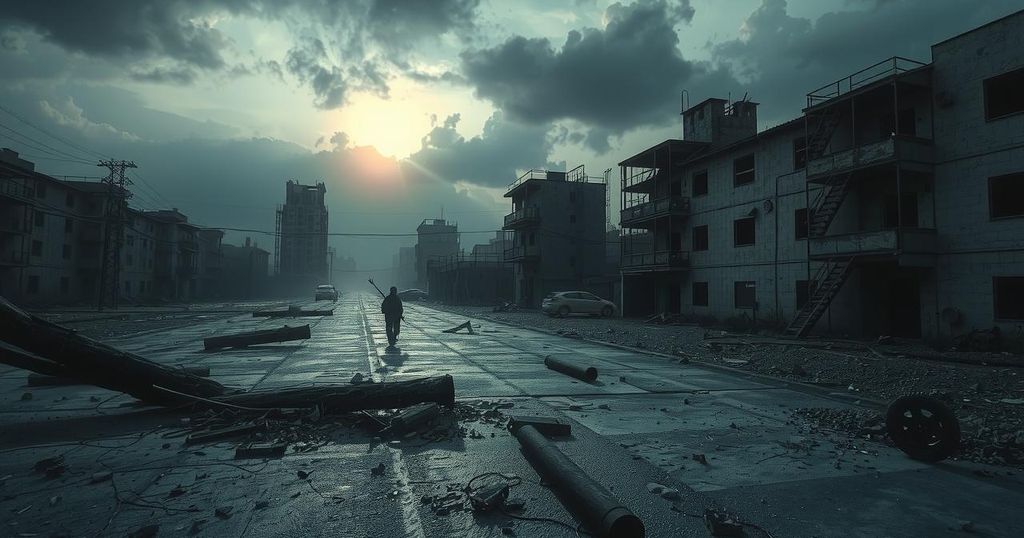The Resurgence of Conflict in the Democratic Republic of Congo: M23’s Impact and Global Ramifications

The resurgence of the M23 rebel group in the DRC is exacerbating long-standing conflicts, leading to mass displacements and humanitarian crises. Following the takeover of Goma, the Congolese government’s mobilization efforts underscore the urgency of restoring control. This conflict positions international interests, particularly related to mineral wealth, against the backdrop of regional instability influenced by Rwanda and China.
The Democratic Republic of Congo (DRC) is currently engulfed in a resurgence of conflict as the M23 rebel group expands its territorial ambitions, initiating a wave of violence that has led to widespread suffering. Following the seizure of Goma, M23 leader Corneille Nangaa has committed to continuing the campaign toward Kinshasa, prompting the Congolese government to launch a mobilization under President Félix Tshisekedi, who declared intentions to reclaim lost territories. As this conflict escalates, the international community has expressed concern, with the potential for ramifications extending far beyond the DRC’s borders.
Conflict in the DRC has deep historical roots, dating back to its independence from Belgium in 1960 and has intensified in recent years due to clashes between national troops and M23 insurgents alleged to be backed by Rwanda. The United Nations reports that over 400,000 individuals were displaced in just one month, and ongoing skirmishes in Goma have claimed the lives of several peacekeepers, highlighting the dire humanitarian situation as corpses accumulate in the streets and essential services are disrupted.
M23, composed primarily of ethnic Tutsi, has positioned itself as a defender of minority rights amid a history of ethnic conflict linked to Rwanda. The group emerged from previous agreements that sought to integrate some Tutsi fighters into the Congolese military, while others departed to form M23 in response to perceived threats to their community. Allegations have been made regarding Rwandan support for M23, which Rwanda denies, creating a tense atmosphere amid the ongoing turbulence.
China’s involvement in the DRC’s mineral wealth, particularly cobalt essential for global electronics, complicates the conflict. Analysts indicate that while the conflict engenders instability, the immediate risk to mineral supplies remains low, despite condemnation of the violence from China. Beijing’s envoy to the U.N. has expressed concern over the risk for broader conflict, reinforcing the fragile nexus between local armed groups and international economic interests that underpin regional power dynamics.
Rwanda’s role has evolved since the M23’s emergence, with international apathy allowing the rebel group to operate with relative freedom. Despite past economic repercussions, Rwanda has cultivated relationships with Western nations through various collaborations, even as criticisms of its support for M23 persist. Ongoing military engagement appears encouraged by Western interests, leaving a perplexing international response characterized by both indifference and strategic partnership in African economic contexts.
The Democratic Republic of Congo has a history marked by conflict, particularly regarding resource control. As a country rich in minerals, the DRC’s stability is crucial both locally and globally. The current resurgence of M23 insurgents threatens to destabilize the region further, potentially drawing in regional powers and worsening humanitarian conditions. Previous peace agreements have consistently failed to sustain lasting tranquility, resulting in cycles of violence that directly impact the local populace and international interests.
The situation in the DRC underscores a multifaceted crisis exacerbated by historical grievances, ethnic tensions, and geopolitical dynamics involving nations such as Rwanda and China. The resurgent M23 poses a significant threat to stability, prompting a critical need for both local governance and international intervention. As humanitarian conditions deteriorate, it is imperative for the global community to address the underlying issues to foster lasting peace and stability in the region.
Original Source: www.nbcnews.com







